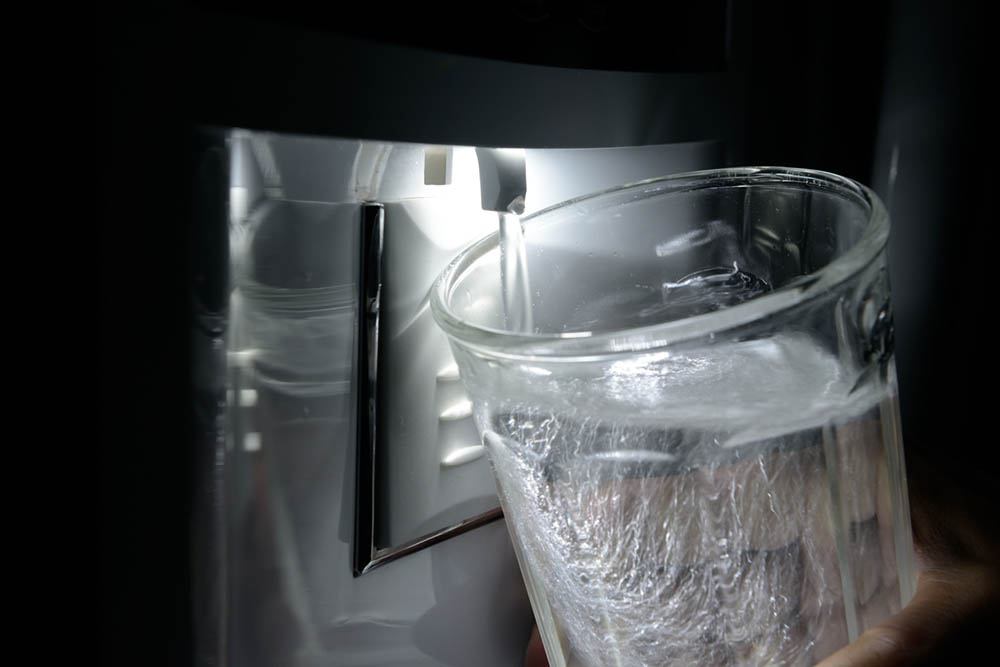Have you got thyroid problems? Perhaps you’ve been diagnosed with an over- or underactive thyroid and are suffering the symptoms. Nutritional Director Rick Hay has help
Tiredness, headaches, muscle aches, muscle cramps, feeling sensitive to the cold, having cold hands and feet, unexplained weight gain, anxiety, dry skin, thinning hair, brittle nails and irregular periods. Do any of these vague symptoms sound familiar to you?
This is a long list (very long) of symptoms that may have just one culprit – your thyroid.
Many people suffer with these vague symptoms but blame their lifestyles or genetics as the cause. But your thyroid makes and secretes the hormones that control and influence the way your body functions, so a dysfunction can often manifest as varied symptoms that are easily mistaken for simply lifestyle-related.
Your thyroid makes and secretes the hormones that control and influence the way your body functions.
For those who are unsure, the thyroid gland is an endocrine (hormone-releasing) gland found in your neck. It produces two hormones that are secreted into our bloodstream, thyroxine (T4) and triiodothyronine (T3). These hormones are necessary for all the cells in our bodies to work normally.
Thyroid disorders are actually very common and tend to occur more in women, although anybody including men, teenagers, children and babies can also be affected. In fact, about one in 20 people have some sort of thyroid disorder, which they may not even be aware of.
One in 20 people have some sort of thyroid disorder, which they may not even be aware of.
The two hormones, T4 and T3 secreted by the thyroid gland influence the metabolism of your body cells. In other words, it regulates the speed with which your body cells work.
These thyroid hormones control how quickly the body metabolises energy at a cellular level, making it crucial for our energy levels. Thyroid activity can alter your basal metabolic rate (BMR) by as much as 50 percent. Where energy is concerned, this can either ramp up your energy levels, or slow them down.
Signs and symptoms of thyroid problems
If too much of the thyroid hormones are secreted, the body cells work faster than normal, leading to hyperthyroidism.
If you become hyperthyroid (overactive thyroid) because of too much secretion from the hormones in the thyroid gland, the increased activity of your body cells may lead to a quicker heart rate or increased activity of your intestine, meaning you will have frequent bowel movements or even diarrhea.
Common symptoms of hyperthyroidism include:
- weight loss,
- heat intolerance,
- anxiety,
- sore and gritty eyes,
- diarrhea.
On the other hand if too little of the thyroid hormones are produced, known as hypothyroidism (underactive thyroid), the cells and organs of your body will slow down.
If you become hypothyroid, your heart rate, for example, may be slower than normal and your intestines work sluggishly leaving you constipated.
Common symptoms of hypothyroidism include:
- tiredness,
- feeling cold,
- weight gain,
- poor concentration,
- depression,
- constipation.
If you think you may have an abnormal thyroid you should visit your doctor who will give you a blood test to confirm whether or not you have a thyroid disorder.
If you know you have a thyroid disorder and are looking to help reduce symptoms that come with it, such as tiredness, there are some simple things you can do to help. Nutritional Director Rick Hay reveals four thyroid fixes you need to know about.
#1 Opt for filtered water
Ah water. Water is THE necessary substance for the life of every creature on this earth – but of course you already knew that.
Some of us drink tap water, others drink bottled water, many of us own those clever jugs that filter tap water for you and the rest of us have those super cool fridges that deliver fresh filtered water that is chilled to perfection.
For those who do drink filtered water, have you ever been told by someone who thinks they know better that ‘there’s nothing wrong with tap water’ or ‘why do you waste money on bottled water, when you can get it from the tap’?
Well, we now have an answer for those people who think they know better. Regardless of the water processing steps that occur before the water comes gushing out of our taps, a chemical to disinfect the final product, usually chlorine, will still be in your kitchen’s drinking water.
Chlorine is the most widely used disinfectant used by water companies to maintain hygienic conditions within the public watersupply network.
Don’t panic though, drinking water is still perfectly safe as the low levels of chlorine found in drinking water won’t cause any problems. However, if you do have an abnormal thyroid it may be an idea to reduce your consumption of tap water and swap to filtered water options.
Iodine is an essential mineral needed for the proper functioning of the thyroid gland.
Although chlorine has been successful in virtually wiping out water-borne diseases, research published in the Journal of Endocrinology in 2012, found that chlorine reacts with dissolved Iodine in the water. This reduces its solubility and causes it (iodine) to be removed during the water filtration process. This therefore can contribute to iodine deficiency.
Iodine is an essential mineral needed for the proper functioning of the thyroid gland. Especially during pregnancy and breastfeeding.
A study showed, that even minor differences in iodine intake between populations are associated with differences in the occurrence of thyroid disorders. Both iodine intake levels below and above the recommended interval are associated with an increased risk of disease in the population.
This is why filtered water, or activated charcoal filters are useful in helping to eliminate almost all of the residual chlorine from your drinking water, so that it doesn’t compete with your iodine levels and effect thyroid function.
If you can’t purchase any kind of filter for your water right now, it’s probably a good idea to get three to four servings of iodine-rich foods such as cod, dairy, tuna, eggs and prunes into your diet each week.
Vegan sources of iodine include, potatoes, bananas, green beans, strawberries, prunes and cranberries.
#2 Cut back on that glass of wine or pint of cider
Everyone is partial to a glass of wine, a pint of beer or popping a bottle pf Prosecco every now and then. Unfortunately, for those who suffer from thyroid issues, it turns out alcohol is a no-no.
In fact, it has been reported that alcohol affects almost every aspect of the functioning of the thyroid gland. Acetaldehyde is a compound that causes those dreaded hangovers and is a by-product of drinking alcohol.
Alcohol affects almost every aspect of the functioning of the thyroid gland.
Unfortunately this compound that comes with drinking alcohol can interfere with our thyroid receptors. This will cause our thyroid gland to become overworked as it attempts to compensate for the lack of feedback that it is receiving. The compound acetaldehyde can also cause symptoms of hypothyroidism (mentioned above).
Of course, we know that alcohol primarily effects the liver and adrenal glands. Both of these endure the brunt of the demand from our bodies, after drinking alcohol. In fact, an average 150-pound person would need two hours for the liver to process just one single drink. The more alcohol a person consumes, the more preoccupied their liver will be. And since liver and thyroid function are so closely related, this causes a definite impact on our thyroid function.
#3 Don’t overdo the soya
If you prefer soya milk in your latte or can’t have dairy and opt for soya milk in your cereal, you may want to swap to another dairy free milk if you have thyroid issues.
Goitrogens are naturally-occurring chemicals found in many plant-based foods. However, goitrogens are also substances that disrupt the production of thyroid hormones by interfering with iodine uptake in the thyroid gland.
More specifically, goitrogens can block the process by which iodine is incorporated into the key thyroid hormones thyroxine (T4) and triiodothyronine (T3).
Goitrogenic foods include soya, soybeans, peanuts, broccoli, cabbage, sprouts, cauliflower and kale. Only worry about this though if you do have thyroid issues. Soy foods do not affect the thyroid gland in people with normal thyroid function and adequate iodine levels.
By cooking, steaming or fermenting goitrogenic foods you can reduce the levels of goitrogens. If you do like to include fresh spinach or kale in your smoothies, try blanching (partly cooking) the vegetables first and then store them in the freezer for later use.
Where eating is concerned, again iodine is a key factor to include. Getting enough iodine and selenium can help reduce the effects of goitrogens; iodine deficiency is a well-known risk factor for thyroid dysfunction.
Good dietary sources of iodine include seaweed such as kelp. Plus, great sources of selenium include Brazil nuts, fish, meat, sunflower seeds, tofu, baked beans, Portobello mushrooms, whole grain pasta, and cheese.
Iodine deficiency is a well-known risk factor for thyroid dysfunction.
#4 Keep a lid on your stress
As well as goitrogenic foods that can negatively effect your thyroid, so can a few environmental factors. And you probably won’t be surprised to know that one of these factors is stress.
Cortisol (aka the stress hormone) reduces thyroid activity by reducing stimulation of the thyroid gland. Even changes in cortisol within the normal range (meaning a small amount of stress like that person taking the last seat on the tube) can cause significant changes in thyroid hormones.
To lessen stress, avoid restrictive diets as calorie restriction can be perceived as a stressor. It may also be a good idea to manage stress levels with meditation, yoga and mindfulness.
Try our Beginner’s yoga course with leading yoga teacher Julie Montagu
#5 Try a supplement
Another way you can help to support thyroid function is by taking a supplement. Supplementation with the amino acid tyrosine and the minerals iodine and selenium may help with normal thyroid function.
Consider taking Biocare’s TH207.
‘It contains antioxidants A and C protect hormones from damage and offer support, plus Selenium and Iodine are essential to thyroid hormone metabolism.
‘The amino acid tyrosine also assists in helping to reduce stress and glycine supports the production of thyroid hormones.
‘This also contains Siberian Ginseng and Licorice for added support’.
More Healthista Content:
7 best celebrity bodies from this year’s awards season
3 public speaking tips this stand up comic swears by
Running for fitness – 5 tips these running experts want you to know
‘Both my parents have tinnitus’
WIN an overnight spa stay worth £279 by taking our 5-minute survey
Do you want to experience ultimate relaxation? To be in with a chance to win an overnight spa stay for two including treatments and meals, complete our five minute survey about how your gut health affects your relationships
Like this article? Sign up to our newsletter to get more articles like this delivered straight to your inbox.

























































